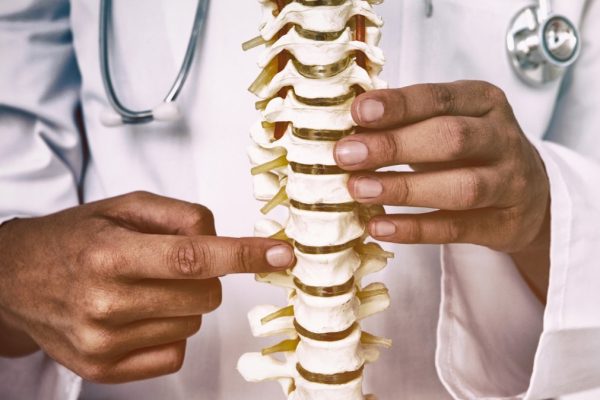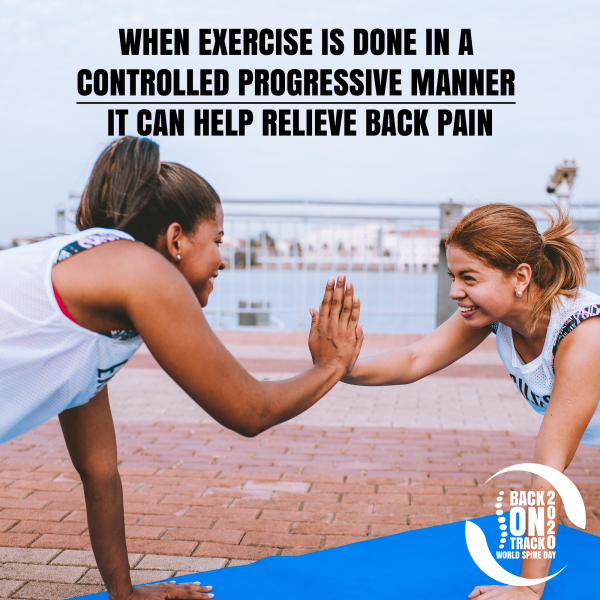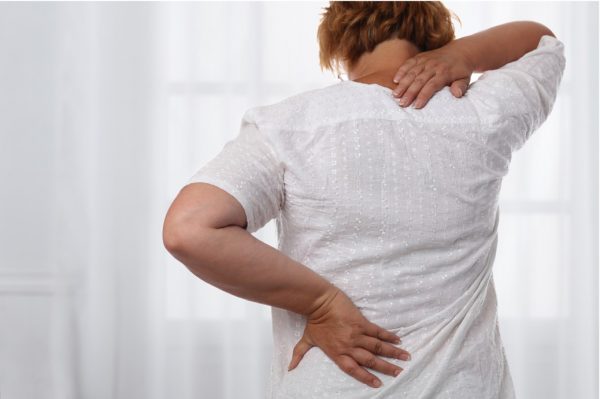'Spinal Nap': What Effect Has Covid-19 Had On Spine Practice?

‘Spinal Nap’: What Effect Has Covid-19 Had On Spine Practice?
Posted on Wed Oct 14, 2020
We spoke to Bob Chatterjee, Consultant Spinal Surgeon and upcoming speaker at Oryon Develop’s 10th Annual Spinal Symposium, to see how his spinal practice and patients have changed as a result of the direct and indirect effects of coronavirus.
What effects can a lack of physical activity have on the spine?
I tell my patients all the time that we cannot underestimate how important physical activity is for the spine and the back in general.
Exercise not only has well known positive cardiovascular benefits, it also directly helps to improve bone strength in the spine and helps to condition the muscles which support and maintain posture, as well as those which support the flexibility and functionality of the spine.
There are also many indirect benefits of exercise such as weight loss, which can reduce undue strain on the spine.
“Video technology… has enabled the partnership between the rehab patient and the therapist/practitioner to grow and develop beyond initial expectations, leading to clear communication and great patient engagement and experience.”
Lack of physical activity therefore affects all these issues, but importantly also has a negative effect on mental wellbeing. Having a positive mental outlook can definitely help minimise the impact of back pain and improve a patient’s quality of life whilst they undergo rehabilitation.
The well-known phrase “life is movement and movement is life” really could not relate closer to spines!

What would you suggest is the best way to rehabilitate patients with degenerative back conditions in a Covid-19 world?
Unfortunately, none of us know when Covid will finally be put to rest and we must all think carefully about how best to complete our daily activities from our homes, including recovering from medical procedures/diagnoses and changing office environments.
With all rehabilitation, initial careful assessment is mandatory to evaluate and accurately identify current issues. During the pandemic this has been no different, but of course we understand that sometimes it may be more appropriate to consult by telephone or face to face using video technology, and this has happened with increasing frequency.
In many cases this has enabled the partnership between the rehab patient and the therapist/practitioner to grow and develop beyond initial expectations, leading to clear communication and great patient engagement and experience.
In recent months, the requirement to work from home has often meant being seated at a desk which has a suboptimal setup. This has unfortunately caused many spinal problems and equally unfortunately has also exacerbated existing conditions.

When a patient has a degenerate back, their body is already maximally compensating for this. This means that their back is less able to adapt to changing environments such as different beds/mattresses or workstation setups.
We normally try optimising patients’ setups by looking at getting the right sort of chair and lumbar and neck support or trying a desk with adjustable height functionality.
We combine that with strengthening and conditioning work on the back to help the muscles adjust better to the new desk environment, and during the pandemic we often suggest online pilates and yoga courses, if appropriate, to supplement this conditioning work.
About Mr Bob Chatterjee
Bob is speaking on Fractures and Trauma to the Spine in more detail for healthcare professionals at Oryon Develop’s 10th Annual Spinal Symposium. Find out more details and book on by clicking on the button below.
What has been your experience with patients since the onset of the pandemic? Have you noted a change in conditions? More chronic or acute symptoms?
It has been dispiriting during the lockdown to see so many patients who, through hard work with the physiotherapist, chiropractor or osteopath, had managed to get their symptoms under control but who have now sadly suffered relapses.
Flare ups of old symptoms or changes in symptoms have been very common which understandably generates a lot of anxiety and concern for the individual and their families.
We carefully evaluate all our patients to make sure nothing new has happened to the spine and we try to construct a workable and realistic rehabilitation programme for them.
The vast majority of patients experiencing changes in symptoms find that these symptoms are reversible with the right treatments and with a trusting and collaborative partnership between them and their clinical team.

Has your diagnostic workup changed at all?
Yes, we Covid test any patients who have symptoms as well as those who are preparing for a procedure, even if they do not have symptoms.
We also check the body’s inflammation levels (to make sure patients are not getting a flare up of any inflammatory joint disease) and assess respiratory function for those patients about to have surgery to make sure that we minimise all the risks possible.
For some patients we evaluate their nutritional status to make sure some important nutrients in the immune system such as zinc and magnesium are not deficient.
“We need to improve our knowledge and awareness of eating the right kinds of food and improving our activity and fitness levels.”
Diagnostic tests aside, we warn our patients of all the potential risks of Covid when undergoing any kind of test or procedure so that they fully understand all the risks involved and are then sufficiently informed to be able to make their decisions and choices carefully.
What can we all do – as healthcare practitioners and as the general public – to mitigate the risk of back problems?
Not surprisingly, prevention is always better than cure as far fractures and trauma are concerned. To help us do this we need to improve our knowledge and awareness of eating the right kinds of food and improving our activity and fitness levels.
Spinal fractures often lead to a cascade of problems beyond the spine affecting posture, respiration and digestion and the loss of independence and mobility.
These are devastating problems, particularly for older patients, so it is vital that we focus our strategies on prevention, whilst at the same time improving our minimally invasive techniques for treating those unfortunate enough to have sustained trauma to the spine.
10th Annual Spinal Symposium
Join Bob and hundreds of your healthcare professional peers at Oryon Develop’s 10th Annual Spinal Symposium, offering 10 hours of CPD for just £99+VAT until 30th November!
Mr Bob Chatterjee MBBS MRCS MSc(Dist) FRCS(Tr&Orth) is an Expert Consultant Spinal Surgeon practising in Central London.
He is both the Director of Harley Street Spine and the Director of the Spinal Unit at St John and Elizabeth Hospital. He also practises at The London Clinic.
You can find Bob’s other details below.
Share this article
Most Recent
All you need to know about getting a private chest X-ray
Posted on Thu Feb 22, 2024
Posted on Wed Jan 17, 2024
Posted on Mon Dec 18, 2023
Stay up to date
If you’re interested in keeping up with what we’re doing, just leave your email address here and we’ll send you periodic newsletters and other updates.





